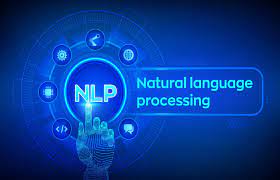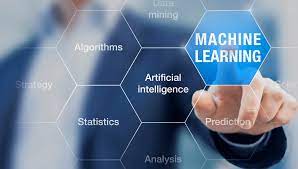Content
Most of the time, a typical enterprise will rely on multiple systems to cover all its requirements. This is where the extendibility which was discussed above comes into play. The reason is that an EAS with a larger array of connectivity options, including other platforms, offers enterprises more freedom to choose and match different EAS to supplement their needs without being vendor-locked. No single software application can facilitate all the needs of an organization.
Their core verticals include financial services, healthcare, higher education, manufacturing, and retail. This module or standalone accounting software can facilitate payroll, budgeting, billing and banking operations. It can conduct cost analyses to better manage cash flow and forecast future growth. Using an ERP product to perform these functions can reduce human error and help cut costs. DevOps Engineer — a dedicated DevOps specialist who aligns the actual process of implementing development tasks, bridging the gap between management and technical production. Everybody has a browser and knows how to use it, which makes it a great, readily accessible environment for digitized workflows.
Business Project Management software is an automation tool to optimize business processes. It gives a complete overview of the business operations and helps curtail errors, miscommunications, and inefficiencies. A few examples of this application software include Zoho creator, Nintex, Kissflow, etc. Today, we have a plethora of high-end application software at our disposal that defines how we live our lives and accommodate our ever-evolving requirements. Widely used application software includes office productivity suites, data management software, media players, and security programs.

It facilitates the sharing of data across the departments of an organization and even to external stakeholders. However, you can’t just start mass emailing people using a library from some programming language. Besides the risk of being targeted as spam, such homegrown approaches might cause you headaches with legislation aimed at protecting users’ data, such as GDPR. Adopting a proper email marketing system is the way to go to if you want to avoid the dangers outlined above and have access to facilities you’ll need to manage your customers’ preferences.
Small and Medium Enterprise (SME)
Assign users to defined roles, and grant permissions at the level of data sources, queries, interfaces, or individual components. Business intelligence platforms are a type of enterprise software aimed at garnering insights from all kinds of existing data sourcesand processes. Each type of enterprise software solution focuses on specific goals and offers different functionalities.
Custom enterprise software development further helps companies design and create systems to help solve niche problems within their specific industry or company to make operations and management as easy as possible. The larger a company grows in terms of customer base and employees, the more diverse and complicated their software requirements become. One of the best ways to overcome any kind of complications, minimize human error on a large scale, and expedite workflows is through the leveraging of enterprise software applications for businesses. Enterprise software is the backbone of digitized workflows and experiences managed and delivered by all sorts of companies, businesses, and facilities.
Now the system automatically generates a daily to-do list for each HR manager. They can assign tasks, set reminders, delegate responsibilities, and get status updates whenever needed. Data management that makes it easy to add job applicants to the database. The system can parse CVs in any format and add relevant information types of enterprise systems to the applicant’s profile. Instead of navigating dozens of folders with outdated files, the team can now have applicant profiles updated automatically. Powerful semantic search and matching that allows HR managers to type a single request into a search bar and get matched with hundreds of relevant profiles.
What are the Examples of Enterprise Software Application?
They can set up filters like job responsibilities, skills, desired salary, region, etc, and the system will search all available platforms for suitable candidates. One of the biggest recruiting companies in Western Europe, used a 12-year old HRM system built in-house. Recruiters had to manually search dozens of sites for job applicants and update their profiles.
Knowledge management platforms are used to centralize information, making it easier to share and disseminate. This has the added benefit of enabling you to retain knowledge, even after individual employees move on. One major challenge faced by all large organizations is managing tacit knowledge.
The system has capabilities such as self-service reporting, document management and approval workflows. It supports analyzing data with embedded Microsoft Excel and Power BI capabilities. All capabilities are fully integrated and built using standard Microsoft tools. An ERP solution can not only help with hiring and training new employees but also tracking their individual productivity. Each employee can log in to the system and enter time worked and manage benefits and vacation time. ERP systems can automate payroll processes, removing the need for an extensive payroll department.
Boost Organizational Effectiveness
Oracle, MySQL, Microsoft SQL Server, PostgreSQL, MongoDB, and IBM Db2 are some of the popular databases. Word processing application software is used to format and manipulate text, thus, creating memos, letters, faxes, and documents. Along with Word Art features, the font option changes the font color, effect, and style per your choice. Grammar and spell-check options are also available to check for grammatical errors. Lastly, 8×8 is a business phone systems solution that offers infinite calling, SMS, automated call-attendant, recording and other tools for smoother calling and virtual meeting experiences. It includes all-in-one communications, business phone, video conferencing, team chat and contact center functionalities.

People would often perceive enterprises as being slow, bureaucratic, and stagnant. Enterprise software, by extension, was often considered bloated, slow, ugly, and hard to use, especially when compared to the trendy apps published by the hottest startups. An enterprise will, hopefully, have many customers, who will invariably have problems and need help to solve them. That’s why most enterprises will have some sort of customer support center in which they reply to customers’ requests, either by phone, email, or live chat. Software that enables a customer support system is crucial in two main ways.
Defining Enterprise
They help companies stay organized, keep employees looped in at all times, and automate processes where necessary to save time and achieve maximum efficiency. The right enterprise software optimizes company productivity while improving the bottom line and increasing visibility into the existing workflow. There are many solutions and types of programs in today’s market classified as business enterprise software. Some exist to help streamline internal processes and such, while others help manage outside relationships with customers, accounting, and much more. It allows developers to accelerate the development, reducing the time-to-market of enterprise apps.
- Add the conditions of collaboration with a hired development team on top of that, and you’ll get a rough estimation.
- Enterprises need to include a proper CS solution to keep an eye on the ever-evolving customer expectations and demands.
- Failure to comply with such laws might result in severe financial and legal consequences.
- ERP software is a large suite of integrated applications that manage everyday business processes and automate back-office functions.
- Additionally, this software can help you measure the effectiveness of your marketing campaigns.
- When an enterprise reaches a certain size, it becomes impossible to conduct all the marketing activities manually.
- No single software application can facilitate all the needs of an organization.
Here are examples of ERP systems that can help you automate your company processes. SMEs play a huge role in the economy and are not a one-size-fits-all sector. There are accounting and other solutions that cater to this business type. Startups consist of freelancers or employees that range from five to 10. They usually have small facilities like a basement or home office, and they leverage Excel or similar tools to manage business affairs and bookkeeping.
datapine
HubSpot is a cloud marketing automation system with an inbound methodology and customer-friendly focus. It caters to all businesses and streamlines a prospect’s journey from beginning to end. All enterprise application solutions are not the same but offer similar features and characteristics. Automate and link crucial procurement acquisition and approval and matching workflows to support internal controls and compliance requirements to declutter the procure-to-pay process. It comes with tools for ERP, CRM, financials, e-commerce, distribution, order management, manufacturing, procurement, project accounting and inventory management.
Project Management Application Software
This way, BI software helps businesses get a competitive advantage over other businesses. Irrespective of the company’s size, a project management software is a must-have. Budibase offers the perfect solution for building streamlined processes and workflows across multiple external tools. Our platform is the ideal way to build all sorts of applications to manage existing data, including forms, dashboards, admin panels, GUIs, and CRUD apps. Often, we’ll turn to specific platforms to manage automations across different tools. Again, most enterprises opt for an off-the-shelf solution, but customization and configuration are particularly important here.
Do You Need a New System or Additional Tools?
Each application is designed to assist users with a particular task that may be related to creativity, productivity, or communication. Application software programs are specific in their functionality and perform the job they are designed to do. The primary goal of every application software is to simplify an operation and help users get their tasks done effortlessly. ClickUp is a customizable project management solution that helps organizations plot, assort and cooperate on diverse assignments. Its top modules include, Gantt charts, dashboards, time tracking and to-do lists.
Businesses should cater to these requirements through a single- multifunctional application. The complexity of enterprise software pushes most corporations to outsource the development of applications they need to run operations. After development, the system gets back in-house for deployment, which usually requires a specialized technology team.
A CRM application helps to provide a seamless customer experience to customers. It derives valuable insights by collecting, analyzing, and strategizing customer data across different touchpoints. Be it completing your tasks, jotting down notes, completing your online research, setting the alarm, keeping an account log, or even playing games; there are explicit application software programs that can help you out. Application software programs are designed to perform specific tasks, simplify workflows, and improve team communication. The most common examples of applications used by millions daily are listed below. Application software is a computer program that performs a specific function, be it educational, personal, or business.









